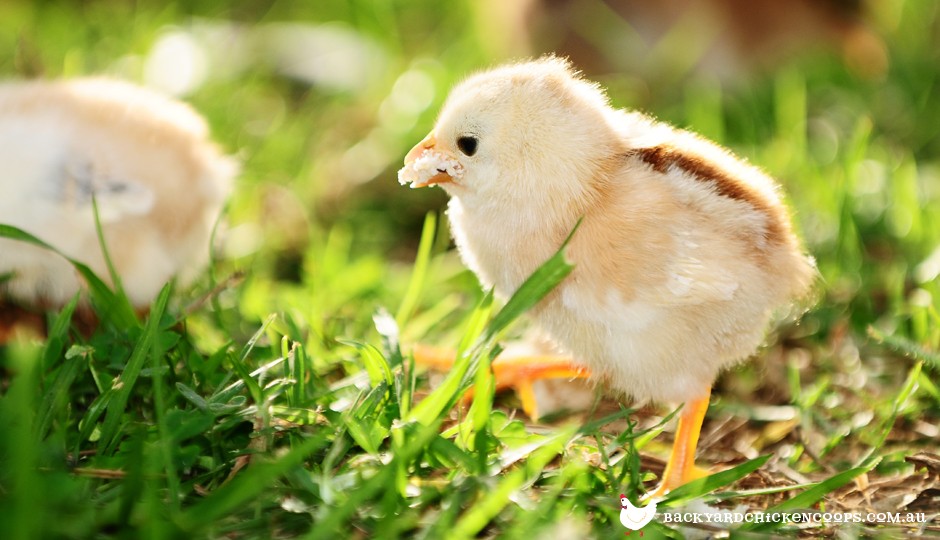How Long Do I Keep Chickens on Starter Feed

What to Feed Baby Chickens - From Day Olds to 8 Weeks
Like all newborns, baby chicks need special attention. Chicks need egg-cellent nutrition to equip them to travel the journey from chick to fully feathered adult. From down to feathers, from peeps to clucks, from an almost imperceptible nub on the top of their heads to pretty red combs, a chicken undergoes the biggest and most rapid transformation from the day they hatch up until about eight weeks old when they are almost at three quarters of their adult weight. That's quite egg-straordinary, I know! So, what type of fuel do these amazing critters need for this awe inspiring journey? Let's stake a "peck" and egg-splore the nutritional needs of baby chicks!

First things first, a baby chick needs access to fresh clean water at all times. Water plays a key role in a baby chick's overall health and wellbeing by aiding most of its bodily functions. Chicks and mature chickens alike consume approximately double the amount of water as compared to feed and therefore, a lack of it can seriously affect a chick's health.
For starters, to get a jump-start in life, chicks begin by pecking at Chick Starter! Chick Starter contains all the essential nutrients a chick needs to grow and develop into either an egg-cellent egg layer or a robust cock-a-doodler! Typically, a chick will eat a starter mix up until eight weeks old; however, many commercial brands now sell chick starter as Chick Starter/Grower and it is fed up until Point of Lay in hens or at sixteen to eighteen weeks for the young gentlemen. A great alternative to commercial chick starter is a wonderful concoction of two staple ingredients; eggs and oatmeal. Simply, hard boil some eggs, mash them up and mix with oatmeal. Although, if you are raising a large number of fuzzy little chicks, feeding commercial starter is a wise choice and is available at most farm supply centers.
As with humans, accurate nutrition in these early stages is essential to ensure your chick's growth. Even the smallest inaccuracies in these early stages could cause them serious health issues and even death. To become confident and learn all there is to know about raising healthy happy chicks into egg-laying hens, visit Chickenpedia. They have a comprehensive course that will give you step-by-step instructions at every step of the way. I highly recommend them to all my readers.
The anatomy of chick starter begins with a most necessary nutrient-protein. Next to water, protein, both plant and animal, is the second most essential nutrient for young chicks. This star body builder stimulates the growth of muscles, tissues and organs-it's basically what makes your wee ones grow. Feel free to offer your young chicks some small worms plucked after a spring or summer shower-nature's homemade protein! Carbohydrates, fats, and vitamins and minerals make up the rest of the cast of nutrients needed by your ever growing wee chooks. Rest assured, though, in the fact that commercial chick starter comprises everything a baby chick needs to mature into a lovely hen or dapper rooster.
Whilst I can give you some knowledge you get you started, it's our friends over at Chickenpedia that can give you a fully comprehensive guide to raising baby chickens. They cover everything you need, from food & water to temperature and vaccinations, so you can experience all the triumphs and avoid disasters with these precious little fluffballs.

Now, let's get down to the nitty gritty matter of offering your baby chicks grit. Do baby chicks or growing young chicks need grit? Basically, if your babies are only eating starter, then they really don't need added grit. If however, you begin adding supplemental foods such as kitchen scraps and treats, then a little bit o' grit is necessary to aid digestion. Grit is egg-actly what it sounds like-minute pieces of earth, stone, and sand. If you live in a nice temperate climate, and your babies are out and about much of the time, they will most likely "peck up" sufficient grit to balance out their diet.
Do you give your baby chicks shell grit? Tell us in the comments below, I would love to hear from you.
An alternative to commercial chick starter, is to simply make your own baby chicken food. Although this choice provides you with the knowledge and peace of mind that your babies are getting egg-actly and only what you put into it, it is a complex process and can be difficult attempting to purchase all the necessary ingredients and then measuring out the egg-act quantities.

There really are no guidelines as to the amount of feed to offer baby chicks. Being the "always hungry" ravenous little critters that they are, it's just fine to keep their feeders filled and at the ready. They will peck and peck until their little bodies let them know they've reached their fill. Then, being the egg-spert little poopers that they are, they'll poop it right out again. Uh, oh…time to clean the bedding, yet again! Such is the life of a chicken keeper-aren't you the lucky clucky one! Ha Ha
Oh and… I should also mention, click here to check out Chickenpedia. As a member, you will get access to the Ultimate Chicken Health Course. I highly recommend this to all of my readers because it has everything you didn't know you needed to know (and lots of free guides). So, don't wing it. Click here to check out Chickenpedia.

Sources and further reading
robinsonwassecove.blogspot.com
Source: https://www.backyardchickencoops.com.au/blogs/learning-centre/what-to-feed-baby-chickens-from-day-olds-to-8-weeks













0 Response to "How Long Do I Keep Chickens on Starter Feed"
Post a Comment